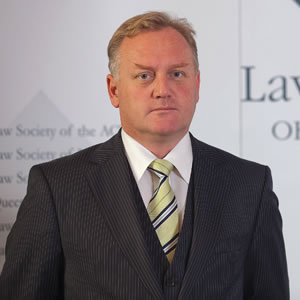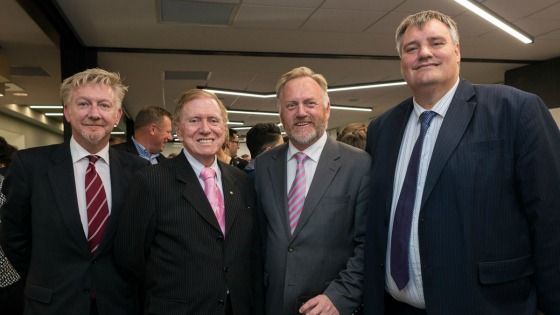Homosexuality used to be a crime in Australia and it still is in a number of Commonwealth countries, writes Alexander Ward.

South Australia was the first jurisdiction in Australia to decriminalise homosexuality 40 years ago on 2 October 1975. The criminalisation came about with the founding of the colony of South Australia in the 1830s and the imposition of the English law, much as every other country colonised and forming part of the British Empire, now the Commonwealth of Nations.
A major catalyst for the change in South Australia was the killing of University of Adelaide law lecturer, Dr George Ian Duncan on 10 May 1972. Dr Duncan was thrown into the River Torrens, which runs through Adelaide near the University precinct. The area was one with a reputation for sexual encounters, and thus a place to go to attack homosexuals. Dr Duncan drowned – a senseless, wasteful killing in the pursuit of 'poofter bashing'. The killing generated a great deal of publicity, even remembered by me as a fairly disengaged 12-year-old.
The killing highlights the evil in having anti-LGBTI offences even if they are not enforced, as is the case in a number of countries. It still stigmatises that community as uncharged offenders. It makes it acceptable, as in this case, to harass, and even throw a person in a river and pass it off as high-spirited behaviour. Which, of course, is a lie.
According to an excellent biography prepared by Tim Reeves, the case gained nationwide publicity back in 1972 because it involved “the broader issue of homosexuality and attitudes towards it”. Obviously, there were feelings about the criminalisation prior to this cowardly and senseless killing, because actions had taken place regarding the acts of consenting adults in private in the UK before this time.
It is of interest that the first response was to bring in a defence to the charge of an act of consenting adults in private. This was introduced to the SA Parliament on 26 July 1972, by Liberal MLC, Murray Hill, so relatively quickly after the death.
Further debate and action took place leading to the complete decriminalisation in 1975, as an act of the Labor Government then led by Premier Don Dunstan QC. Rather than disappear from the statute book, as often occurs with repealed sections, the act now says: "68A — Abolition of crime of sodomy – The law relating to unnatural offences shall be as prescribed by this Act and any such offence created under any other enactment or at common law is abolished."
There will be no relapse on the mistaken basis that the Act is silent.
The decriminalisation of homosexuality was a tremendous milestone for Australia and has us in the position in 2015 where it is inconceivable to the general population that homosexuality would be a crime. My children could not conceive why, in the film the Imitation Game about WWII hero Alan Turing, that he would be harassed and in trouble with the law because he was homosexual. That is not to say there is a complete removal of discrimination in Australia, but compared to other jurisdictions in the Commonwealth, the LGBTI community is respected and (relatively) free of discrimination. But there is always more work to do. A resentment and opposition to marriage equality seems to be raising its tedious head in some quarters, but we will see what happens.
Homosexuality is now decriminalised in all jurisdictions within Australia, and a number of other Commonwealth countries. The decriminalisation of LGBTI practices is a matter that the Commonwealth Lawyers Association (CLA) continues to have under discussion, from the very point of the classification of such behaviour between consenting adults in private as criminal, to the proportionality of punishment. It is an issue the CLA placed firmly on its agenda at its Hong Kong Conference in 2008.
On 15 September 2015 the university recently set up a memorial tribute to Dr Duncan and to mark the 40th year anniversary of the repeal of the laws, and this was opened by Commonwealth Eminent Person, the Hon Michael Kirby AC CMG. Further, the Dr Duncan Memorial Scholarship has been established to assist undergraduate students who have demonstrated commitment to LGBTIQ issues. So Dr Duncan, and the positive legacy of his dreadful death, shall be remembered.
Alexander Ward is the president of the Commonwealth Lawyers Association.
Pictured (L to R): Barrister Anthony Durkin, Michael Kirby, Alexander Ward and the dean of Adelaide Law School, Professor John Williams, at the Dr Duncan commemoration in September 2015.
